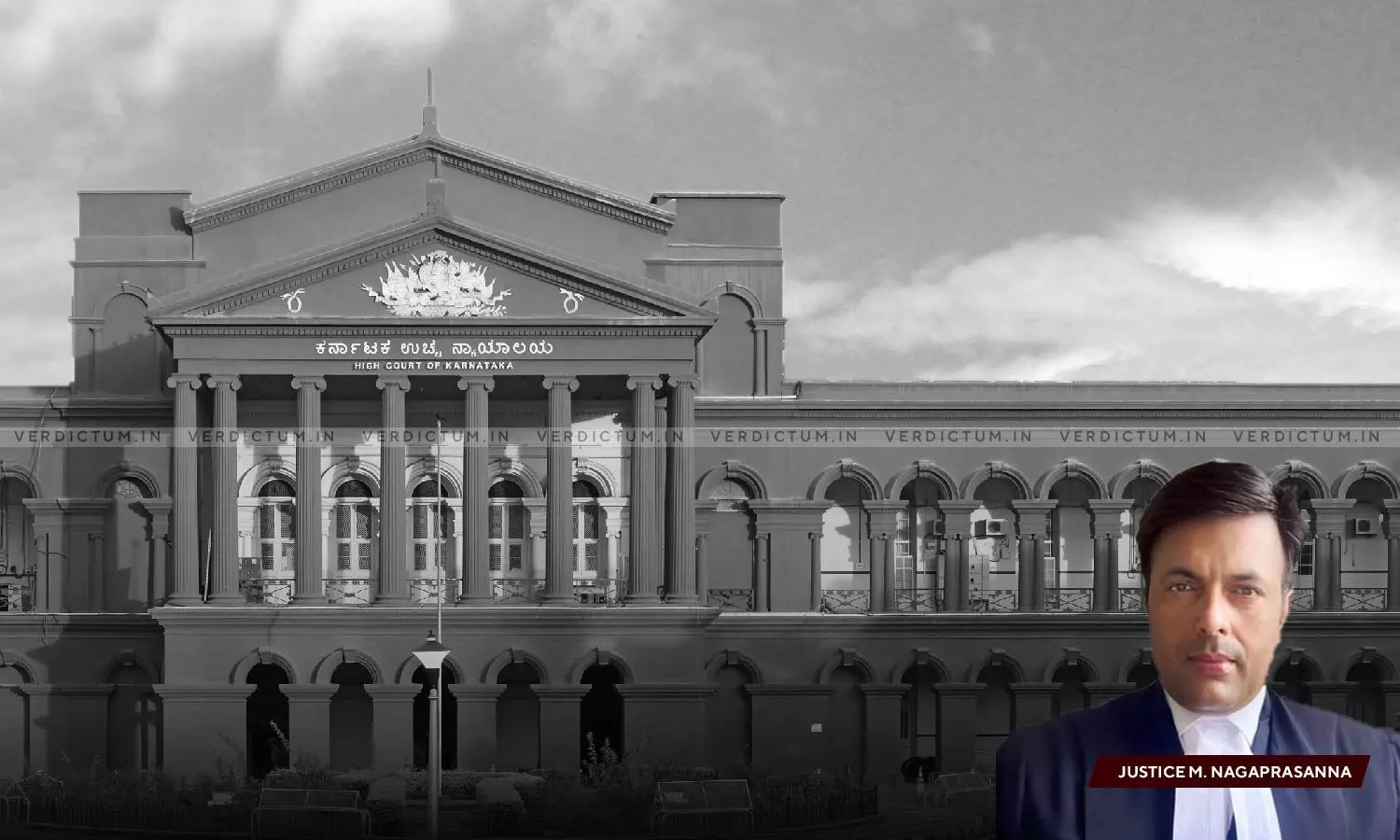
Karnataka High Court Issues Guidelines To SHOs On Summoning Persons U/S 35 BNSS
 |
|The Karnataka High Court has issued guidelines drawing a check list to Station House Officers (SHOs) for summoning persons under Section 35 of the Bharatiya Nagarik Suraksha Sanhita, 2023 (BNSS).
The Court was dealing with a writ petition filed by a man calling in question a notice issued by the Sub-Inspector of Police, Amruthalli Police Station under Section 41(1)(a) of the Criminal Procedure Code (CrPC).
A Single Bench of Justice M. Nagaprasanna said, “In the light of the mandate of law under Sections 41 and 41-A of the Cr.P.C., which is now under Section 35 of the BNSS, it becomes necessary to the State to issue guidelines drawing a check list to all those Station House Officers, akin to what other states have done, who would summon any person under Section 35 of the BNSS.”
The Bench clarified that till the guidelines/check list is so notified by the State, if any person is necessary to be summoned, the drill that shall be followed are –
(a) The notice under Section 35 of the BNSS shall mention the crime number and the offence alleged in the crime number. This can be communicated to the noticee either through the conventional method or through electronic mode.
(b) The communication shall attach copy of the FIR so registered, as the FIR would contain the gist of the complaint.
(c) In the event notice does not contain the crime number, the offence alleged or appending of the FIR, subject to just exceptions, the noticee is not obliged to appear before the officer who has directed him to appear and no coercive action can be taken for non-appearance.
(d) It is also necessary for the Police Department to bring about robust system for the FIR being uploaded immediately on their registration and make it search friendly.
Senior Advocate M. Aruna Shyam appeared for the petitioner while HCGP Harish Ganapathi appeared for the respondents.
In this case, the petitioner claimed to be a reputed renowned senior Journalist. The averments were that he worked in reputed media channels and news papers to name a few, ETV, TV-9, Samaya TV, Janasri Bhrarth-1 and Vijaya Karnataka. It was the further averment that he worked in various capacities like, reporter, anchor, editor-in-chief, CEO and Director. The story in the petition commenced from a notice that he had received on WhatsApp issued by the respondent calling upon him to appear before him at Amruthahalli Police Station. The petitioner was said to have requested for time and also sought the reason for summoning or issuing a police notice which had been transmitted by way of WhatsApp.
The respondent did not disclose the reason for issuance of the impugned notice. The notice was styled to be issued under Section 41(1)(a) of the CrPC, which does not refer to registration of any crime under which the notice was issued. The petitioner then claimed that he enquired about the impugned notice at the police station at around 12 p.m. through his Advocate and sought reasons for issuance of the notice. Even then, he was not informed the crime details. It was, therefore, the petitioner knocked at the doors of the High Court via petition.
The High Court in the above regard directed the Registry to transmit the copy of the order to the Secretary, Department of Home Affairs, the DG and IGP of the State of Karnataka, for appropriate action, in compliance with the order, for issuance of guidelines, as observed in the course of the order, within 8 weeks from the date of receipt of the copy of the order.
“Such compliance be reported back to this Court on the expiry of 8 weeks”, it added.
Accordingly, the High Court partly allowed the writ petition.
Cause Title- Tavaragi Rajashekhar Shiva Prasad v. State of Karnataka & Ors.
Appearance:
Petitioner: Senior Advocate M. Aruna Shyam and Advocate Suyog Herele E.
Respondents: HCGP Harish Ganapathi